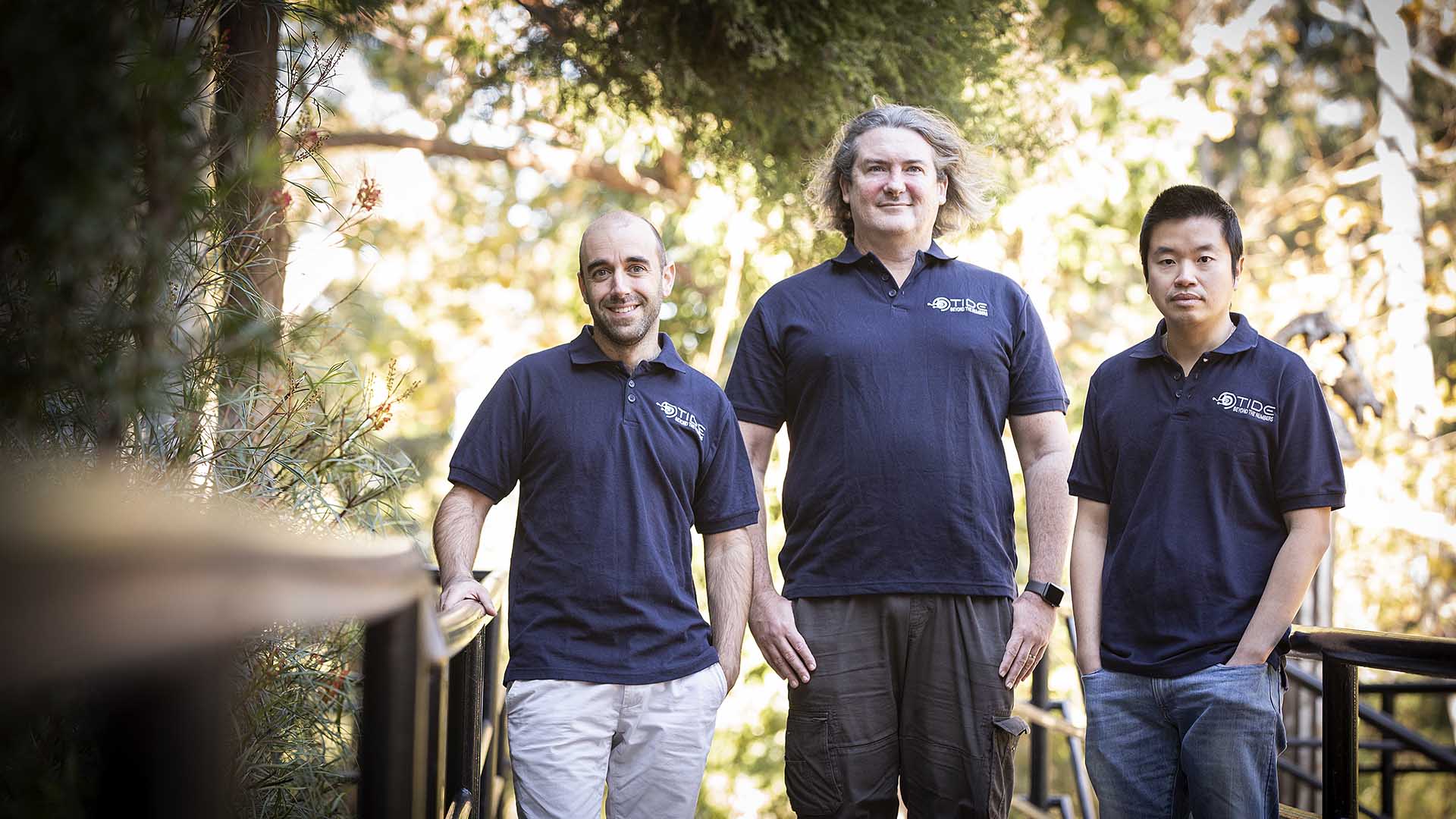UOW contributes expertise in uncertainty quantification, statistical inference and artificial intelligence to new ARC Industrial Transformation Research Hub

University of Wollongong (UOW) researchers will play a key role in a new research hub that will use data and physics-based science to support the transformation of Australia's offshore energy infrastructure, making it more reliable and cost-effective.
Led by the University of Western Australia (UWA), the Transforming Energy Infrastructure through Digital Engineering (TIDE) Research Hub was officially launched by Australian Research Council (ARC) Deputy Chief Executive Officer Dr Richard Johnson in Perth last week.
Hosted at the UWA Oceans Graduate School, it will draw experts from core disciplines of oceanography, hydrodynamics, geotechnics and marine structures at UWA, along with mathematics, statistics and data science at UWA and the National Institute for Applied Statistics Research Australia at UOW.
TIDE is funded by $5 million under the ARC Industrial Transformation Research Program, supplemented by $5 million in industry funds as well as significant in-kind contributions and co-investment and in-kind contributions from UWA and UOW.
In launching the initiative, Dr Johnson highlighted the way the TIDE Research Hub has creatively drawn together expertise from research, industry, and business to enable a range of innovations that will reduce costs, improve safety, and lower environmental impacts.
"With the Australian energy industry transitioning to long-term operations, research outcomes will inform decision-making processes regarding offshore energy infrastructure, benefiting the Australian economy and attracting ongoing investment in the industry," Dr Johnson said.
TIDE Director Professor Phillip Watson, from UWA's Oceans Graduate School and Oceans Institute, said offshore energy added more than $55 billion gross value to the economy annually and directly employed 100,000 people, and as the Australian energy industry transitioned to long-term operations, it was critical that the sector leveraged research to lower the cost of future production.
"The hub findings will transform how the industry manages critical energy infrastructure - such as pipelines, structures and vessels - which will result in process improvements that are not only affordable, but safer and more reliable," Professor Watson said.
UOW team leader Associate Professor Andrew Zammit-Mangion said UOW researchers will help integrate uncertainty quantification, statistical inference, and artificial intelligence with science-based models, to allow for improved evidence-based decision-making in various applications related to offshore engineering.
"Data science is revolutionising the energy sector. This Hub will be the national centre for transforming the way we use data for decision making in offshore engineering through the fusion of domain expertise and statistical inference," Associate Professor Zammit-Mangion said.
"One of the things we are focussed on at TIDE is making offshore energy processes environmentally safe, and my personal interest is to make processes related to renewable energy, particularly offshore wind farms, more efficient and affordable."
Other UOW researchers contributing to the project are Dr Matt Moores and Dr David Gunawan from NIASRA, which sits in the School of Mathematics and Applied Statistics in the Faculty of Engineering and Information Sciences.
Australian research partners include the Australian Bureau of Meteorology, the Australian Institute of Marine Science.
International collaborators include researchers and scientists from Lancaster University, University of Texas, the University of Oxford, the Technology Centre for Offshore and Marine Singapore, the University of Southampton, HR Wallingford, Virginia Tech, SolidGround and the Alan Turing Institute.
Industry partners include Woodside, Shell, INPEX, Lloyd's Register Group, Bureau Veritas, Fugro, Qeye, RPS and Wood.






